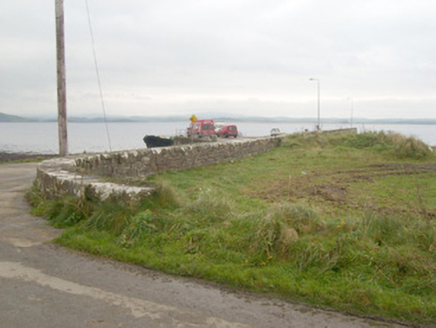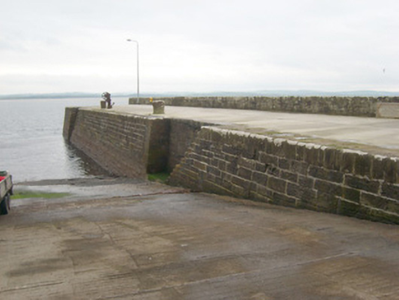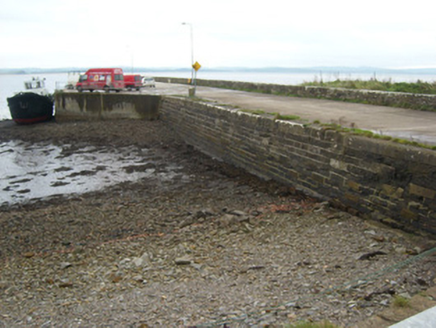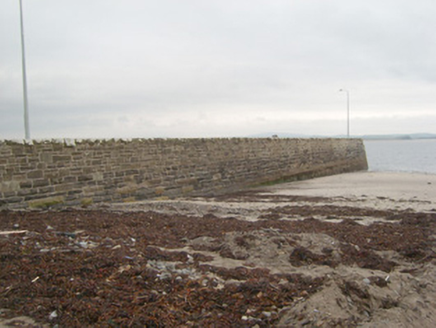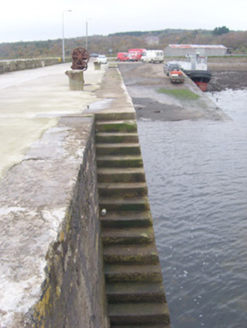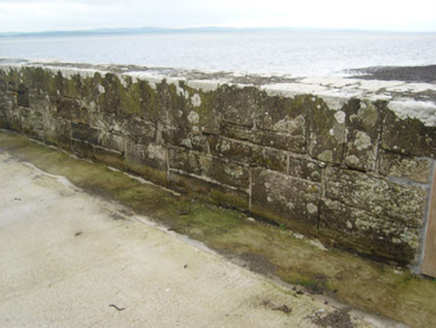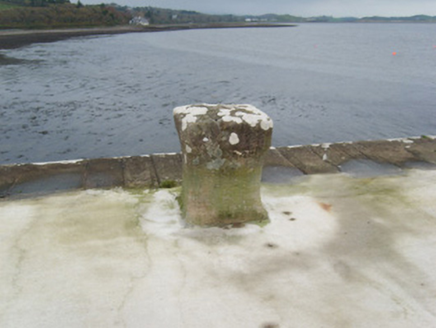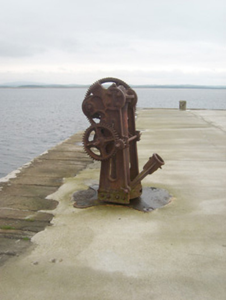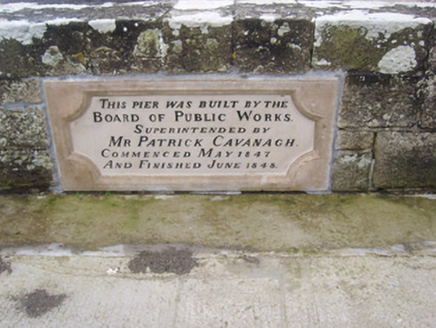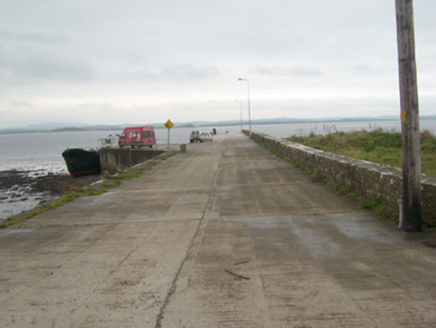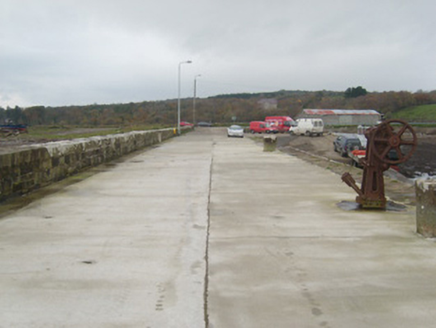Survey Data
Reg No
40909908
Rating
Regional
Categories of Special Interest
Architectural, Social, Technical
Original Use
Pier/jetty
In Use As
Pier/jetty
Date
1840 - 1850
Coordinates
186786, 375782
Date Recorded
20/11/2007
Date Updated
--/--/--
Description
Pier/jetty, dated 1847/8, having storm wall to the south-west elevation and modern slipway to the centre of the north-east elevation. Still in use. Constructed of squared and coursed rubble stone masonry with squared and coursed/snecked rubble stone construction to storm wall having rubble stone coping over. Storm wall curves along with topography to the north-west end. Modern stone date plaque to the storm wall. Flights of cut stone steps to the north-east elevation giving access to water level. Cut stone coping to edges with concrete deck. Cut stone bollards (on square-plan) at intervals along the north-east elevation with cast-iron/steel winch to the east end. Pier juts out into Donegal Bay to the south-west of Mountcharles. Rubble stone retaining walls to quayside to the north-east.
Appraisal
This impressive and large-scale pier/jetty at Salthill is an integral element of the extensive maritime heritage of south Donegal. It is robustly-constructed of squared and coursed rubble stone masonry, and its continued survival and use is indicative of the quality of its original construction. The series of cut stone bollards, flights of stone steps and the cut stone coping to the verges adds additional interest, while the survival of the winch adds additional technical interest. This is one of the better piers of its type still surviving in Donegal and dates to the mid-to-late nineteenth century, a period that witnessed a huge investment in the construction of piers/jetties in Donegal, mainly by the Board of Works and later the Congested Districts Board, as well as by private subscription. A modern plaque to the pier records that it was built by the Board of Works with a Patrick Cavanagh the superintendant, and that works started in May 1847 and were completed in June 1848, which was right in the middle of the tragedy that was the Great Famine.
